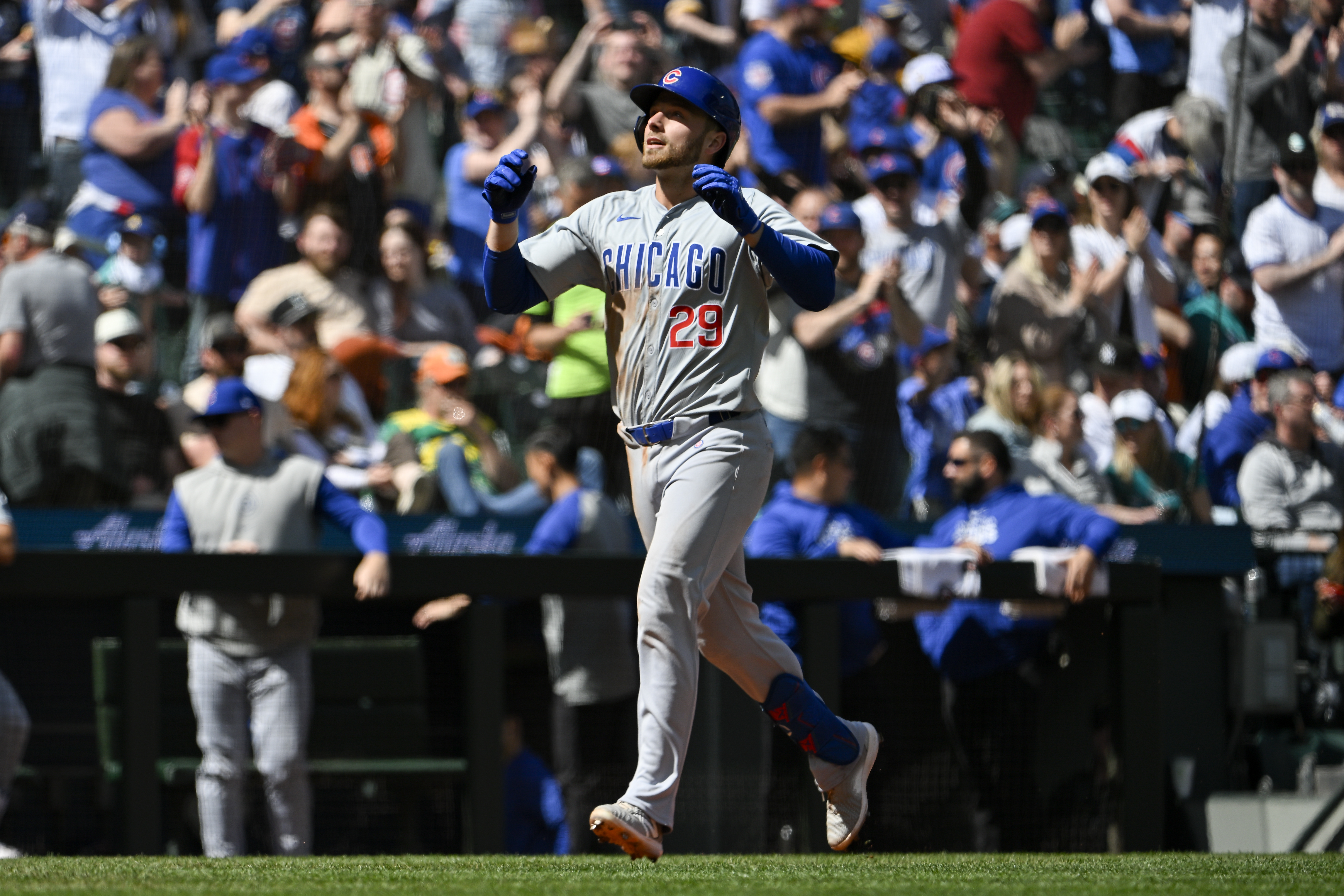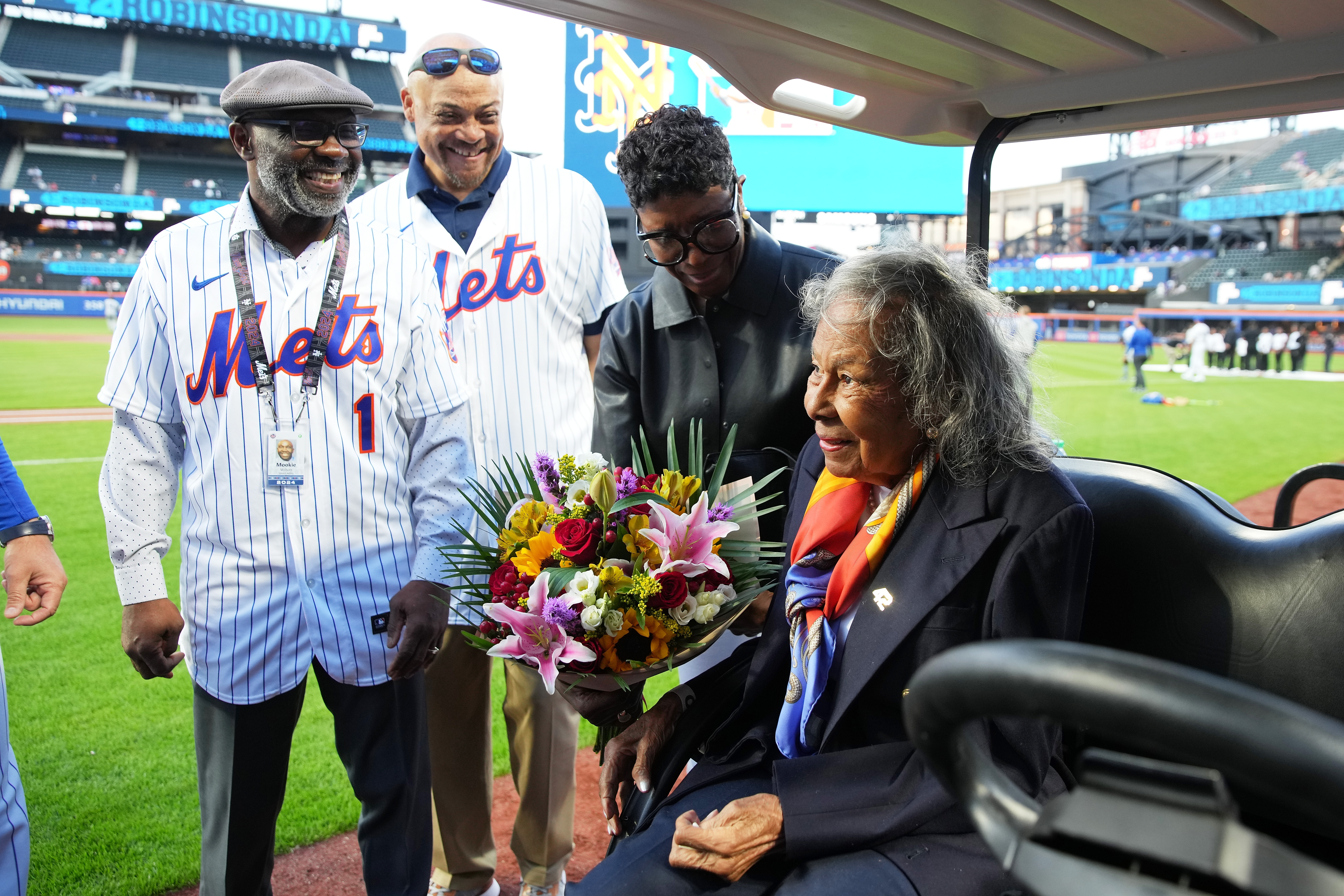A reporter asking Cubs manager David Ross about the COVID-19 news out of Atlanta on Saturday used the word “shocking” to describe it.
But there’s nothing left to shock us about this pandemic — not spiking coronavirus infection rates across large swaths of the country, a national death toll of 132,000 or even one of the biggest stars in the National League being stricken with what looks like a tough case of the virus.
Freddie Freeman’s case — which prompted the Braves first baseman’s wife to take to Instagram to plead for Americans to take the virus seriously and to wear masks — is a sobering reminder the needle baseball is trying to thread during a pandemic and potentially instructive for the Cubs and other teams.
It’s also especially personal to Cubs such as Ross and right-fielder Jason Heyward, both former Freeman teammates.
“It definitely hits closer to home,” said Heyward, who texted with his former roommate.
MLB
Click to download the MyTeams App for the latest Cubs news and analysis.
But shocking?
If anything, the shocking part of Saturday was that the Cubs played a baseball game — albeit, a short intrasquad game that featured scoreless pitching performances by Kyle Hendricks (three innings) and Yu Darvish (two), and double to the left-center gap off Darvish by Javy Báez.
MORE: Why the Cubs were ready for an intrasquad scrimmage on Day 2 of Summer Camp
For an hour or two of practice before that, and the hour or so of “game,” it looked almost normal.
Then the masks were back, the players washing and scattering and planning to try to make it happen without incident one more time on Sunday. Then Monday. Then Tuesday and so on.
“We all know some of us are going to test positive coming into this,” Heyward said.
In fact, that’s the most shocking part of MLB’s startup of summer training camps this week: Only 1.2 percent of the first 3,185 intake tests of players and other personnel produced positive results — a clear victory for league-wide discipline and apparent respect for safe practices.
On the other hand, those results didn’t include all of the intake testing done during the week. They also didn’t include the positive tests of players and staff that teams already were aware of — including at least 12 from the Phillies more than two weeks ago.
And a cautionary detail of Freeman’s case is that he reportedly tested negative during intake testing — before getting hit “like a ton of bricks” by the virus Thursday, according to his wife’s Instagram post.
“Literally, we just take this thing day to day,” Ross said. “We’re all to some extent worried what the next day may bring. So, this is an added stress to the season.
“All the guys are on board with following the protocols and understanding that’s what it takes to keep everybody safe as possible.”
The Cubs have done as good a job of respecting protocols and preparing for this moon shot of a 60-game MLB season this summer as anyone in the game. They didn’t have a player test positive during intake testing.
“We know it’s going to be very different this year,” Hendricks said. “But we’re embracing all the changes, following everything we can follow and just lucky we can be playing baseball again.”
But even while the Cubs experienced what Hendricks called their “a little sense of normalcy with everything that’s going on” during a drama-free day of baseball under a sunny sky at Wrigley Field, the Phillies added ace pitcher Aaron Nola to the COVID-19 injured list, the Yankees reported that former batting champion DJ LeMahieu was one two Yankees to test positive, and the Dodgers announced that former Cy Young winner David Price had become the sixth known player to opt-out of the 2020 season (after reconsidering the health risk to himself and family).
And even before the Freeman news broke out of Atlanta — which also included three other positive tests and a coach (former Cub Eric Young) opting out — the Royals announced that the American League’s most decorated catcher, Salvador Perez, also had tested positive.
Does all of it mean baseball can’t pull off the next 15 weeks or so of training, regular-season and full schedule of playoffs?
Maybe not. But it's at least a stark reminder that MLB had a tenuous grasp at best on controlling its ability to make it happen, that every day of this process is a high-alert stress test with no assurances under conditions of perfect behavior league-wide.
And then it starts over the next morning.
“The pandemic is in control,” Cubs president Theo Epstein stressed when talking about baseball’s undertaking a few days ago.
That’s why on a Saturday when new infections in the country topped 50,000 for the third consecutive day, news out of Atlanta — or New York, Los Angeles, Philadelphia or any other stricken baseball locale — was anything but shocking.
Maybe baseball can navigate this shaky moment during the startup and avoid enough of the growing spread of this virus to have more days like the Cubs had on a beautiful Saturday afternoon at Wrigley.
Maybe even enough of those days to reach October — maybe even enough to turn this “new normal” into something truly shocking.


